Table of Contents
Introduction:
You are not alone if the prospect of investing in the stock market scares you. Individuals with only a passing familiarity with stock investing are either terrified by horror stories about the average investor losing 50% of their portfolio value as happened in the two bear markets that have already occurred this millennium or are seduced by “hot tips” that promise enormous rewards but rarely materialize.
Thus, it is not surprising that in the stock market, the emotion pendulum is considered to swing between fear and greed.
While investing in the stock market entails risk, when done properly, it is one of the most efficient ways to increase one’s net worth.
While the value of one’s property often accounts for the bulk of an individual’s net worth, the majority of the wealthy and extremely wealthy invest the majority of their fortune in stocks.
To begin Investing in the Stock Market, one must know how to value.
Valuation is an important metric in Equity Investing. We invest in various equities based on their favorable valuations. Undervalued stocks define those stocks that are relatively valued as per their earnings capabilities. When we value any stock, we are valuing the future earnings capability of the company. Hence I say, “Company that earns, is worth the yearn”.
Valuation is not the market price, valuation is not the amount the stock quote in the market. Valuation is intrinsic worth and can be momentary in nature. Yes, momentary for the value of a company can change in a matter of days. And those that are consistent in optimum valuation are those that lead the sector. We call them Blue chip companies, one that is usually suggested for Long-term holdings.
And, those who do not understand Equity Investing or those who do not intend to invest their time and effort in the Stock Market. It is suggested to stick to the largest and best-managed companies in India. Thus, Invest in the largest and best-managed companies for safe and steady equity returns.
What is valuation?
A valuation can be beneficial when determining the fair value of a security, which is established by the price a buyer is prepared to pay a seller, providing both parties enter the transaction voluntarily. When security is traded on an exchange, buyers and sellers decide the stock or bond’s market value.
However, the term “intrinsic value” refers to the perceived value of a security based on future earnings or another firm characteristic unrelated to the security’s market price. That is where valuation enters the picture. Analysts conduct evaluations to ascertain whether the market has over-or under-valued a company or asset.
Example:
A company share price quoting at CMP Rs.100 per share.
Outstanding shares = 1,00,000 in number.
Market Cap of the company = Rs.1,00,00,000 (Rs.100*1,00,000)
Earnings Per Share = Rs.10
Company earings = Rs.10,00,000 (Rs.10*1,00,000)
Intrinsic worth – ??
In the above case, How well can we decide whether to invest or not? How to evaluate the company just by the earnings figure?
To find the value of the company share. We need to know the Intrinsic value per share, the actual worth of the company. Fair value is just the price agreed between the buyer and sellers at any given time. Intrinsic worth is the actual worth the company ought to be sold for. To know the intrinsic worth is to know the valuations.
Now, in the above example. If you pay Rs. 100 and own 1 share, based on the earnings capability of the company, your money will be earned back by you in 10 years. Meaning, 10 times of current Earnings per share is equal to the amount you pay to own the stock. But, there’s a catch here. The company’s earnings are not neutral.
They grow over time. So, when a company is earning Rs.10 per share for the current period. With the growth in its earnings (if any), the company could earn Rs. 12, 15, or even 20 and over. Thus, you need not wait 10 years to get back your investment.
So, to get the “Intrinsic Value” of a business, you need to know to what extent the company earnings are growing over time. And then, you need to discount the future estimated earnings to the current period to arrive at the fair value of the business.
Techniques used for Stock valuation:
Stock valuation is a complicated process. There is no defined set of rules to value a stock, Each of us has our own set of strategies. The Strategies used by veteran investors are unlimited. Investors value a stock based on the financial numbers, the economic certainty, and other aspects that directly or indirectly influence the company and finally the share price. Hence, to value a company. The investor has to have a set of defined strategies and relevant pieces of information.
Stock Valuation types:
- Absolute method – A pure Fundamental Analysis based technique of Investing. In this method, an investor primarily relies on the Company valuation that is Financial centric. The analysis of Annual, Half-Yearly, Quarterly Financials is done from time-to-time to arrive at such a decision that allows an investor to invest in the script.
- Relative method – In this method, an investor not only analyzes the script based on financials. He\She does a back end testing know as ‘peer comparison’. One that allows an investor to know more about the sectoral advantages an investment hold and based on the information, he\she will make the investments accordingly.
For more information, watch our YouTube video:
Stock Valuation methods:
There are sufficient tools available to the investor to compare the company with its peer in the same sector or industry. This approach allows an investor to arrive at such a decision that’s favorable and easily achievable.
To compare the stock with its peer companies via ratio analysis, and select the best-quoted share amongst the peer company. However, the issue is with what ratio to be considered whilst comparing a company.
One of the most used valuation methods. Under the DCF approach, an investor arrives at the intrinsic worth of the company based on discounted cash flow to its present value. This method is most favorable for two reasons.
- It takes the time value of money into consideration.
- The return expected in not nominal, hence inflation-adjusted.
A Dividend based investing model. A quantitative valuation technique, The DDT model is under the assumption that the current price (Fair value) of the company share is equal to the company’s dividend earnings in the future date when discounted back at the present value.
In this method, we value the dividend earnings (in future date) and compare it with the stock price that we pay today. It is used to value the price of the stock based on the Net Present Value (NPV) of the future dividend we earn.
Top 20 Best stocks (2021)
Top 20 Best stocks to buy for Long-term & Short-term in India (2021):
| S.No. | Name | CMP Rs. | ROCE 5Yr % | ROE 5Yr % | P/E | EV / EBITDA | PB X PE | PEG | Debt / Eq | Int Coverage | ROCE % | ROE % | ROIC % | ROA 12M % | EPS 12M Rs. | Mar Cap Rs.Cr. |
|---|---|---|---|---|---|---|---|---|---|---|---|---|---|---|---|---|
| 1 | Asian Paints | 3254.75 | 35.69 | 26.38 | 89.48 | 55.14 | 2181.52 | 7.14 | 0.09 | 52.38 | 34.81 | 27.26 | 35.41 | 17.5 | 36.38 | 3,12,224.15 |
| 2 | Bajaj Auto | 3864 | 29.74 | 22.43 | 19.85 | 14.95 | 81.39 | 5.51 | 0 | 899 | 25.39 | 19.84 | 222.51 | 16.15 | 194.62 | 1,11,805.58 |
| 3 | Bharti Airtel | 699.25 | 7.88 | -11.89 | 361.81 | 9.38 | 2525.43 | 2.76 | 1.88 | 12.33 | -22.17 | 14.54 | -1.54 | 1.93 | 4,11,641.96 | |
| 4 | Dabur India | 616.2 | 28.45 | 25.6 | 60.9 | 43.68 | 865.39 | 9.23 | 0.07 | 73.18 | 27.27 | 23.73 | 46.31 | 16.8 | 10.12 | 1,08,935.31 |
| 5 | Dr Reddy's Labs | 5034.6 | 11.44 | 11.43 | 48.21 | 22.14 | 226.59 | -41.56 | 0.17 | 28.3 | 15.39 | 11.66 | 13.4 | 7.85 | 104.47 | 83,755.32 |
| 6 | HDFC Bank | 1595.45 | 7.22 | 17.09 | 26.92 | 22.3 | 113.33 | 1.35 | 7.2 | 1.76 | 6.31 | 16.47 | 6.31 | 1.88 | 59.55 | 8,83,723.54 |
| 7 | HDFC Life Insurance | 733.15 | 23.49 | 20.76 | 125.67 | 104.16 | 2157.75 | 16.22 | 0.07 | 0 | 17.69 | 15.37 | 17.69 | 0.76 | 5.84 | 1,48,274.91 |
| 8 | Hero Motocorp | 2844.55 | 35.35 | 26.37 | 18.24 | 11.7 | 67.31 | -7.83 | 0.04 | 87.3 | 24.18 | 18.73 | 53.21 | 13.14 | 155.92 | 56,808.58 |
| 9 | Hindustan Unilever | 2708.65 | 74.36 | 53.82 | 76.63 | 51.91 | 1023.01 | 5.34 | 0 | 112.08 | 39.21 | 29.23 | 15.95 | 18.39 | 34.87 | 6,36,339.12 |
| 10 | IRCTC Limited | 4166.1 | 41.35 | 27.53 | 247.37 | 155.02 | 11240.49 | -81.91 | 0 | 36.35 | 16.52 | 11.64 | 11.17 | 5.05 | 18.56 | 66,680.89 |
| 11 | Infosys | 1692.8 | 32.1 | 24.31 | 35.52 | 22.35 | 356.27 | 4.79 | 0.07 | 143.8 | 35.25 | 27.22 | 32.11 | 19.44 | 47.69 | 7,20,827.75 |
| 12 | ITC | 234.7 | 32.95 | 22.75 | 20.77 | 13.79 | 99.49 | 2.93 | 0 | 499.07 | 28.62 | 21.02 | 41.04 | 17.77 | 11.32 | 2,89,219.18 |
| 13 | Kotak Mahindra Bank | 1982.35 | 7.47 | 13.46 | 39.52 | 26.41 | 182.98 | 1.68 | 3.85 | 2.09 | 6.49 | 13.11 | 6.49 | 2.16 | 50.2 | 3,92,989.09 |
| 14 | Larsen & Toubro | 1716.7 | 13.43 | 15.64 | 15.89 | 10 | 49.74 | 0.58 | 1.73 | 3.04 | 15.3 | 19.26 | 20.15 | 5.05 | 88.69 | 2,41,207.61 |
| 15 | Marico | 557.95 | 42.82 | 35.75 | 60.88 | 41.83 | 1338.14 | 5.64 | 0.11 | 47.61 | 43.99 | 36.72 | 45.87 | 22.88 | 8.87 | 72,077.46 |
| 16 | Nestle India | 19395.55 | 78.86 | 53.63 | 84.56 | 52.14 | 7067.52 | 4.53 | 0.07 | 16.94 | 139.29 | 105.76 | 68.9 | 27.63 | 229.34 | 1,86,988.23 |
| 17 | Pidilite Industries | 2436.35 | 34.7 | 25.52 | 93.26 | 60.82 | 2064.78 | 13.14 | 0.06 | 48.23 | 29.42 | 22.51 | 20.87 | 14.78 | 26.07 | 1,23,778.38 |
| 18 | Reliance Industries | 2609.2 | 10.18 | 10.48 | 36.46 | 19.22 | 91.15 | 4.42 | 0.41 | 4.28 | 8.19 | 7.97 | 12.03 | 3.9 | 75.98 | 17,36,744.44 |
| 19 | Sun Pharma Industries | 820.5 | 13.3 | 9.91 | 34.34 | 18.86 | 145.6 | -3.42 | 0.08 | 65.95 | 13.92 | 6.33 | 16.54 | 8.26 | 25.02 | 1,96,936.45 |
| 20 | TCS | 3833.3 | 45.56 | 35.16 | 40.19 | 27.03 | 659.52 | 5.86 | 0.09 | 75.32 | 48.9 | 39.06 | 58.23 | 26.75 | 92.46 | 14,18,784.57 |
Please note: The rates mentioned may change over time. Investors are advised to cross-check the provided information and show due diligence before investing. And, all the said companies are for information only. Seek Professional advisors before taking further steps.
Asian Paints
Asian Paints is India’s largest paint company, also making varnishes, enamels, and lacquers, as well as surfacing preparation, organic composite solvents, and thinners. It is present in 15 countries and has 26 paint manufacturing facilities worldwide, supplying consumers in more than 60 nations.
Apart from Asian Paints, the group operates globally under a variety of brand names, including Asian Paints Berger, Apco Coatings, SCIB Paints, Taubmans, Causeway Paints, and Kadisco Asian Paints.
Additionally, it manufactures metal sanitary ware such as baths, sinks, and washbasins. Lighting, furnishings, and furniture have recently been introduced, expanding the category of home décor and interior design.
Bajaj Auto
Bajaj Auto, the Bajaj Group’s flagship company, is a two-and-three-wheeler manufacturer that exports to more than 70 nations in Latin America, Southeast Asia, and elsewhere. Its headquarters are in the Indian city of Pune.
It now owns 48% of the KTM Brand, which makes sports and super sports two-wheelers, up from 14% in 2007, when the business purchased KTM for the first time. And, is a great addition to one’s portfolio to fill in the Auto sector.
Bharti Airtel
Bharti Airtel Limited is a market leader in the telecommunications industry, operating in 18 countries spanning Asia and Africa. The firm, headquartered in New Delhi, India, is one of the world’s top three mobile service providers in terms of users.
In India, the company offers 2G, 3G, and 4G wireless services, as well as mobile commerce, fixed line services, high-speed home internet, DTH, and enterprise services, including national and international long-distance services to carriers. It also offers 2G, 3G, and 4G wireless services, as well as mobile shopping, across the remaining geographies. At the end of March 2019, Bharti Airtel had over 403 million subscribers throughout its operations.
Dabur India
Dabur India Ltd is one of the largest FMCG companies in India, with revenues above Rs 7,680 crore and a market capitalization of Rs 48,800 crore. Dabur is presently India’s Most Trusted Brand and the World’s Largest Ayurvedic and Natural Health Care Company, building on a 133-year tradition of quality and experience.
Dabur India is a market leader in consumer care and food products.
Dr Reddys Labs
Dr. Reddy’s Laboratories Ltd is a renowned pharmaceutical company headquartered in India. The company offers a diverse range of products and services, including Active Pharmaceutical Ingredients (APIs), Custom Pharmaceutical Services (CPS), generics, biosimilars, and differentiated formulations.
HDFC Bank
The Housing Development Finance Corporation Limited (HDFC) was one of the first financial institutions to gain an ‘in-principle approval from the Reserve Bank of India (RBI) to establish a private sector bank. HDFC Bank is a publicly-traded banking firm that was founded in August 1994 under the name ‘HDFC Bank Limited’ in Mumbai, India.
It operates a variety of banking and financial services businesses, including retail banking, wholesale banking, and treasury activities. The promoter is HDFC Ltd., which owns 19.32 percent of the company as of September 30, 2020. At the moment, HDFC Bank Ltd. (HBL) is India’s largest private sector bank. The bank’s overall balance sheet size as of March 31, 2020, was Rs. 15,30,511 Cr.
HDFC Life Insurance
HDFC Life Insurance Company is a life insurance company. The Company provides a variety of personal and group insurance products. The portfolio includes a variety of insurance and financial products, including protection, pensions, and retirement savings.
HDFC Life Insurance Provider Limited is a joint venture between HDFC Ltd., India’s largest home finance company, and Standard Life Aberdeen, a worldwide investment firm.
Established in 2000, HDFC Life is a market leader in long-term life insurance in India, offering a comprehensive range of individual and group insurance products to address a variety of consumer needs, including protection, pension, savings, investment, annuities, and health. As of June 30, 2021, the Company’s portfolio included 37 individual and 13 group products, as well as seven optional rider benefits that addressed a varied spectrum of consumer demands.
Hero Motocorp
Hero Moto Corp, formerly known as “Hero Honda,” was one of the first motorbike manufacturers in India. In 1984, the company began as a technological collaboration with Honda of Japan. Hero previously sold cycles under the brand name Hero Cycles.
In 2011, Honda sold its 26 percent stake in the company to the Munjals (promoters), effectively ending the JV. After the JV was terminated, the company’s name was changed to Hero Motocorp.
Hindustan Unilever
Hindustan Unilever is India’s largest FMCG company, with a focus on Home Care, Beauty & Personal Care, and food & refreshments. The company operates production plants throughout the country and mostly sells to consumers in India.
IRCTC limited
IRCTC is a Mini Ratna (Category-I) Central Public Sector Enterprise under the Ministry of Railways, Government of India.
IRCTC was established on 27 September 1999 as an extension of the Indian Railways with the mission of upgrading, professionalizing, and managing catering and hospitality services at stations, on trains, and other locations, as well as promoting domestic and international tourism through the development of budget hotels, special tour packages, information, and commercial publicity, and global reservation systems.
Infosys
Infosys is a global leader in consulting, technology, outsourcing, and next-generation digital services, allowing clients to successfully execute digital transformation initiatives.
Infosy’s strategic purpose is to establish a long-term organization that remains relevant to client’s agendas while also providing growth prospects for employees and investors. Infosys’ goal is to act as a guide for our clients as they conceptualize, plan, and execute their digital future journeys.
ITC limited
ITC was founded in 1910 and is the country’s major cigarette manufacturer and seller. ITC currently operates in five segments: FMCG Cigarettes, FMCG Other, Hotels, Paperboards, Paper & Packaging, and Agri-Business.
Kotak Mahindra Bank
Kotak Mahindra Bank is a diversified financial services group that offers a broad range of banking and financial services.
These include retail banking, corporate and investment banking, investment banking, stockbroking, vehicle finance, advisory services, asset management, life insurance, and general insurance.
Larsen & Toubro
Larsen & Toubro Ltd. is a multinational conglomerate focused on engineering, procurement, and construction (EPC) solutions in critical sectors such as infrastructure, hydrocarbons, power, process industries, and defense, as well as information technology and financial services in both domestic and international markets.
Marico
Marico Limited is a significant consumer goods company in India, with a global presence in the beauty and wellness categories.
It operates in over 25 countries throughout Asia and Africa’s emerging markets. It develops and supports premier brands in hair care, skin care, edible oils, healthy foods, male grooming, and fabric care categories.
Nestle India
Nestle India Limited is an Indian food company. The company is engaged in the food industry.
As of September 2020, Nestle generates 47% of revenue from milk and nutrition products (dairy and weaning foods), 10% from beverages (instant coffee, iced tea, and other beverage vending mixes), 30% from prepared dishes and cooking aids (the Maggi line), and 13% from chocolates and confectionery (including Kit Kat and Munch).
Pidilite Industries
Pidilite Industries Limited is a market leader in adhesives and sealants, building chemicals, artisans and do-it-yourself goods, and polymer emulsions. The majority of our goods are the result of extensive in-house research and development.
The brand includes names such as Fevicol has become synonymous with adhesives for millions of people in India and is consistently named among the country’s most trusted brands. M-Seal, Fevikwik, Fevistik, Roff, Dr. Fixit, Fevicryl, Motomax, Hobby Ideas, and Araldite are a few of our other well-known names.
Reliance Industries
Reliance Industries Limited is a Fortune 500 firm and India’s largest privately held company. It has evolved from a textiles and polyester manufacturer to a diversified firm with interests in energy, materials, retail, entertainment, and digital services.
On a daily basis, practically all Indians are touched by Reliance’s products and services, which span economic and social spectrums.
Sun Pharma Industries
Sun Pharmaceuticals Industries is a manufacturer, developer, and marketer of a broad range of branded and generic formulations, as well as Active Pharmaceutical Ingredients (APIs).
TCS
Tata Consultancy Services is the group’s main company. It is a provider of information technology services, consulting, and business solutions that has been assisting many of the world’s leading enterprises in their transformation journeys for more than 50 years.
TCS provides a comprehensive spectrum of business, technology, and engineering services and solutions that is consulting-led, cognitive-enabled, and integrated.
Conclusion:
As you can see, all the recommended stocks are of ‘Blue chip Companies’. Known for being market leaders. These are those companies that rule the sector they are in. Hence, it is a safe and reliable investment for a retail investor. This way, one can assure that his/her investment is in such a company that is the market leader.
Remember, In Equity Investing, ‘Return of Capital’ is more important than ‘Return on Capital’.
We are in one such phase of the market where the chances of the situation turning from bad to worse are more likely. The US dollar-based Monetary system is at the brink of collapse. None can predict what we ought to see hereon. But, as an Investor and an Economist. I surely see major changes happening at the global level and the same to have a major impact on the Indian Market.
Hence, we have drafted this article. Remember, As much as it is important to invest. Asset allocation stands a major role in wealth creation. Invest in such well-established companies. And have trust in Indian Capitalistic Democracy.
Disclaimer: All the information on this website is published in good faith and for general information purpose only.

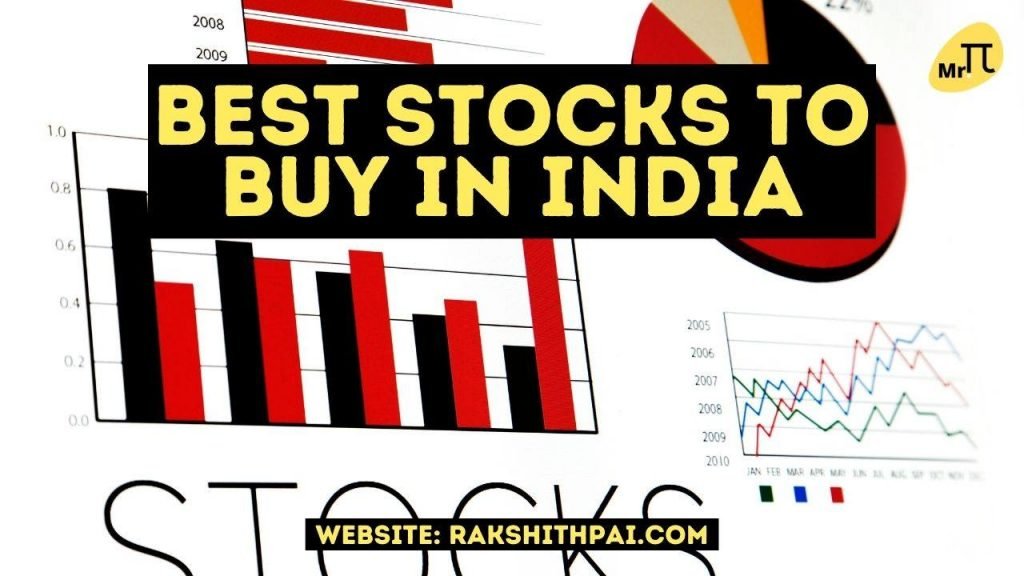

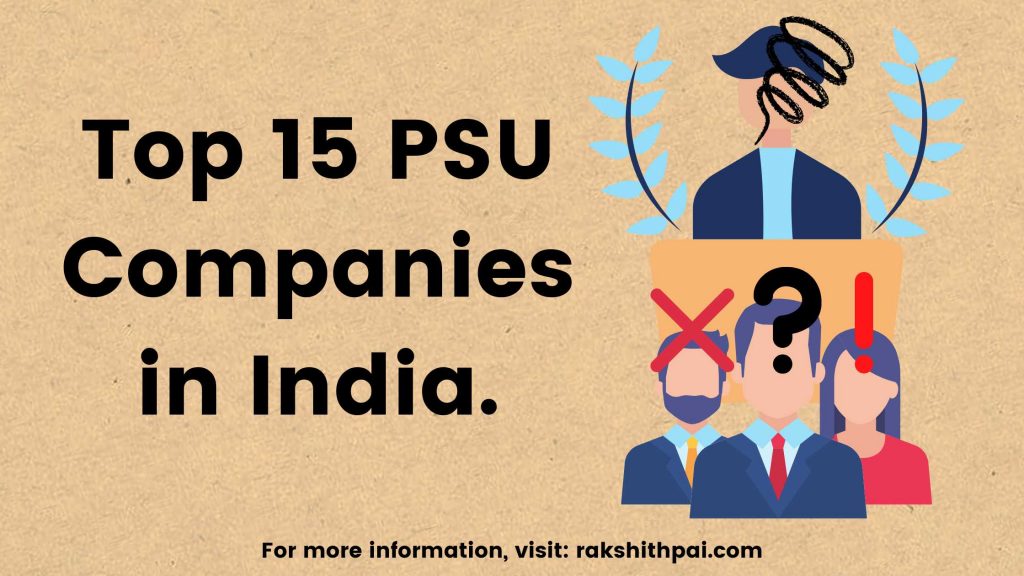
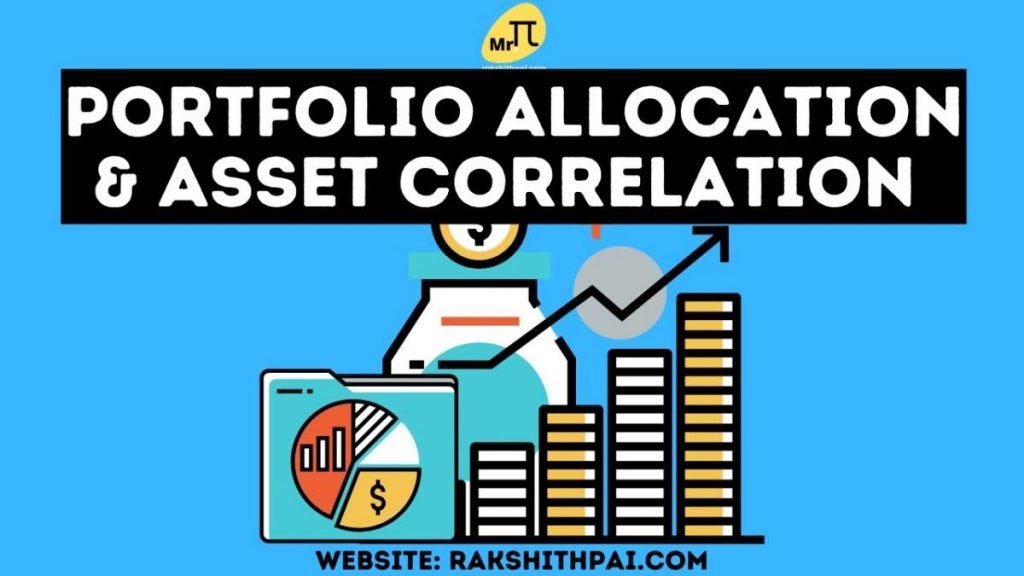
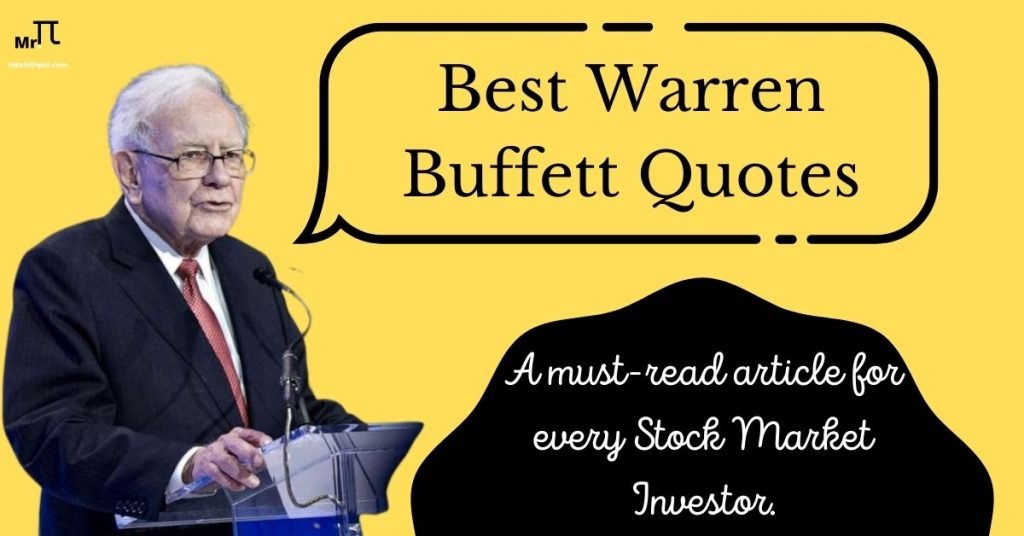
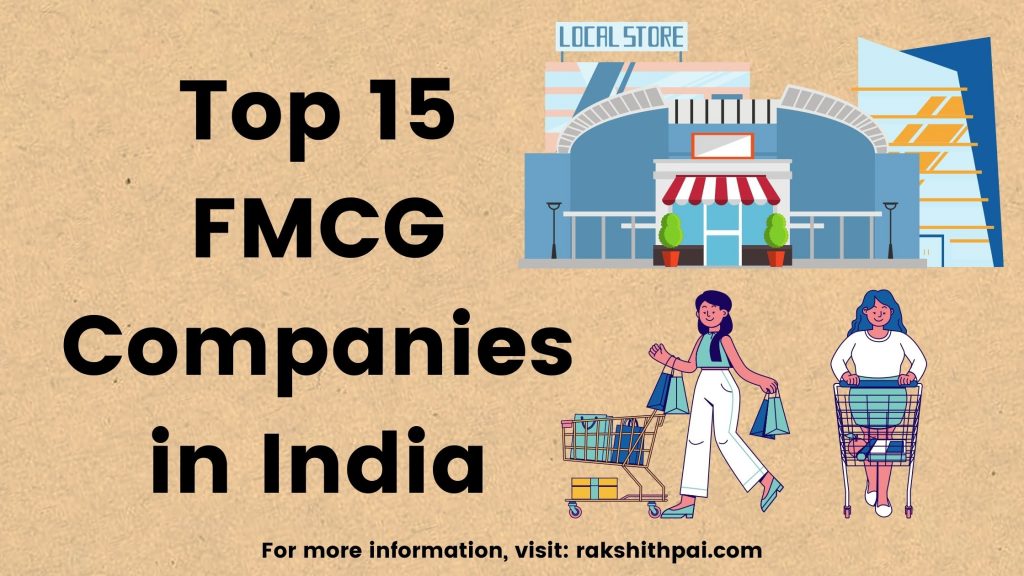


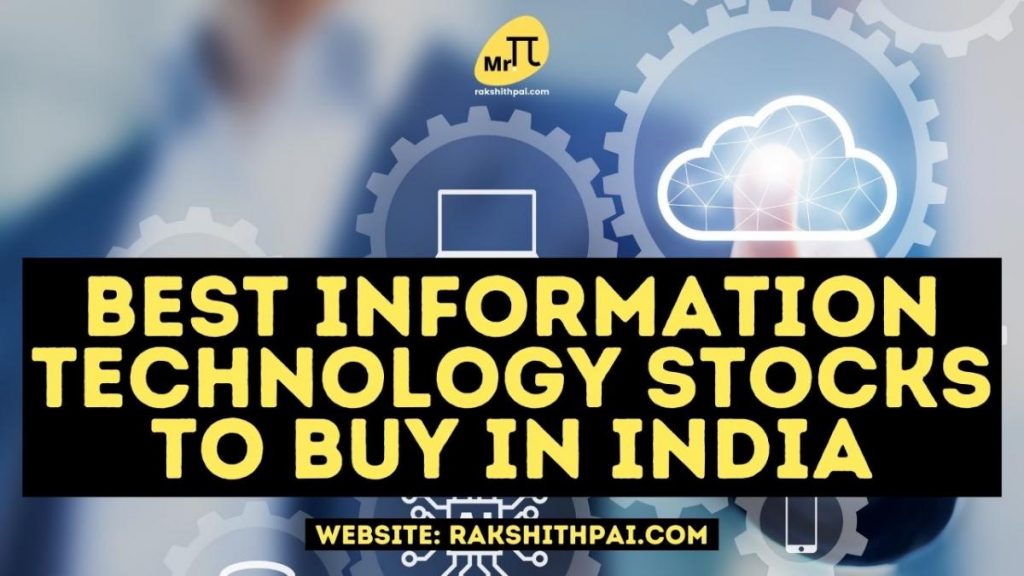
Hi Rakshith,
Can I invest n the above mentioned stocks? Is it worth investing.
Please reply.
Also, thank you for writing this article. Brief and informative 🙂
Hi Nikita,
Thank you for reading our post.
To know what I really think about “Large-cap investing” Do check this post; https://www.linkedin.com/feed/update/urn%3Ali%3Aactivity%3A6750345076939075584/
I would suggest every investors to invest in the various asset classes (Mutual Funds, Bonds, Bullion etc) and diversify.
I would suggest you to start your investment journey by investing in Mutual funds, Index and ETF’s. Then, once you are comfortable with investing on your own. You can invest via direct equities.
I wish you good luck 🙂